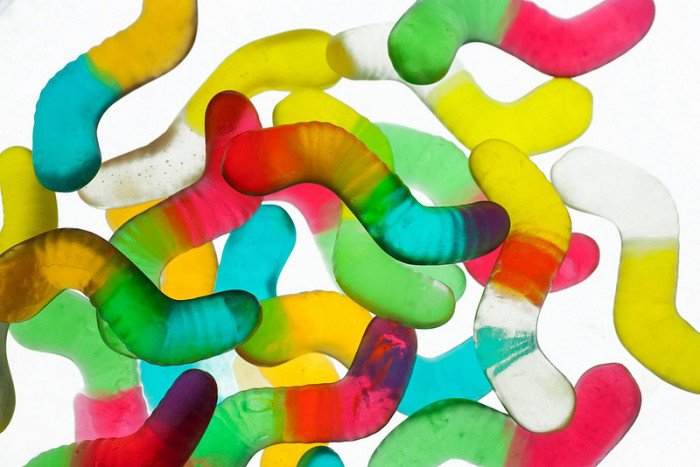Living in our modern world, we learn to fear bacteria and viruses but rarely think about other kinds of parasites–worms, protozoa, fungi–that still lurk in our environment. In developing countries without access to clean water or sewage systems, parasites are a ubiquitous life-threatening presence. But we are not immune in America. Recently, the Dr. Oz show featured people who were misdiagnosed, but who had parasites all along–and, they are not alone: approximately 1 out of 3 Americans have intestinal parasites at any given time.
Vegans, fortunately, are less susceptible because we don’t eat meat, fish, eggs and dairy products. But parasites live in plants, ground, and air, especially around animals and pets–and that means we are not immune. There are thousands of different types of worms and hundreds of parasites: not just intestinal worms, but fungus (yeast), microscopical amoeba, and lamblia, all of which can cause mild or severe symptoms often confused with allergies, skin diseases, and cancer. You could experience diarrhea, unexplained chronic fatigue, or weight loss; they can even cause depression by compromising the nervous system with their secretions.
It’s useful to educate oneself about what parasites are, how harmful they are and how to get rid of them using alternative medicine. There are a lot of remedies and solutions: herbs, seeds, roots, and other parasite cleanses. There is a herbal supplement from Grandmas’s Herbs called Worms & Parasites which is 100% botanical and contains tansy, wormwood, black walnut and garlic. In addition, try eating raw pumpkin seeds on an empty stomach in the morning and drinking Terra montmorillonite clay and ginger powder water.
Personally, I found that the most effective remedy was papaya seeds but they were unbearably bitter. Fresh green black walnut wormwood extract is also bitter but it can be added to juice and water. If you like raw garlic, this powerful antiviral and antibacterial ingredient can also fight worms.
Finally, if you suffer from frequent infections, try cutting back on sugar and yeasty foods like most breads and beer, and eating more fresh vegetables.
Since I have become aware of parasites and try to make choices that might help. For example, when washing organic vegetables I use two basins: one solid bowl and another inserted colander. I soak fresh vegetables in this double basin adding salt for half an hour then I lift a colander and water is filtered pulling down dirt, parasites, and everything that is heavier than water. In case of conventional produce which is not supposed to have worms, I use the same technique but instead of salt I use vinegar to dissolve pesticides.
When eating out I avoid ordering raw vegetable salads and I ask for lightly steamed vegetables because vegetables are not always washed in restaurants or not washed well enough. I also prefer 100% vegan restaurants where there is no contact with meat and fish. Vegetarian options at the conventional restaurants might be still contaminated by being stored and prepared next to raw animal flesh or fish.
Keeping your home clean is one of the most important ways to stay parasite-free. High-traffic areas like entryway, kitchen counter and sink, toilet, bathtub, and shower curtain should all be scrubbed frequently with natural disinfectants.
Unfortunately we are not protected from ingesting parasites. But clean living conditions, closing a toilet lid, washing hands, eating well-washed raw produce and drinking pure water as well as leading a healthy lifestyle that strengthens our immune system can help you stay parasite-free.
Also in Health News: How to Get Better Night’s Sleep
Can Your Gut Microbes Make You Fat?
4 Ways a Bad Posture Can Affect Your Health
__
Photo: Sergio Quesada via Flickr





